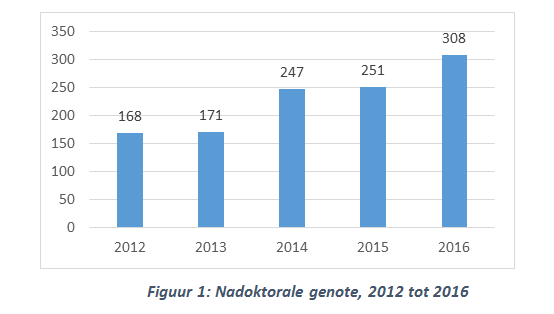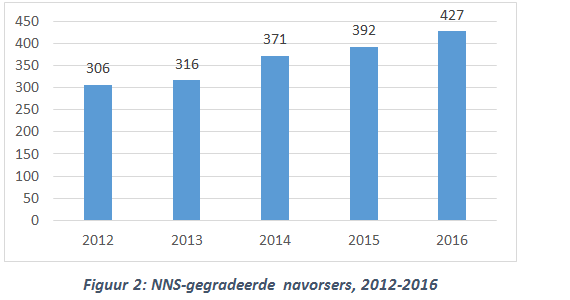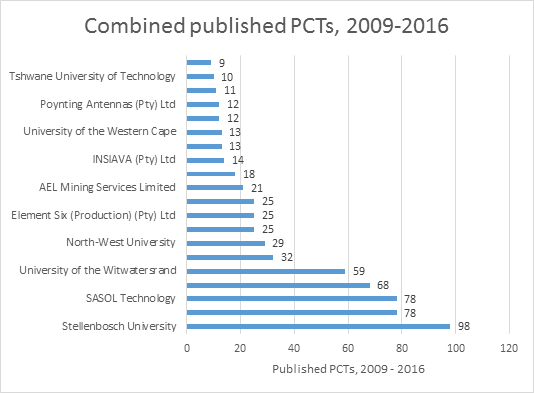The Vice-Rector: Research, Innovation and Postgraduate Studies, Prof Eugene Cloete, reported comprehensively to Senate about his responsibility centre in March 2017. What follows are selected highlights from the executive summary of Prof Cloete's report, organised around objectives in his portfolio.
Young academic stars
Appointing young academics, with the focus on developing staff into excellent researchers, has been a priority for Stellenbosch University (SU) for some time now to address the challenge of an ageing productive scientific community. The expansion of the postdoctoral fellow programme has been a strategic intervention in this regard to ensure a solid knowledge base going forward. This focus has resulted in an increase in the number of postdoctoral fellows from 168 in 2012 to 308 in 2016:

Figure 1: Postdoctoral fellows, 2012 to 2016
Rated scientists
SU has the country's second-highest number of scientists rated by the National Research Foundation (NRF), including a total of 13 A-rated researchers regarded as world leaders in their respective fields. The number of NRF-rated academics increased from 306 in 2012 to 427 in 2016, as shown below:

Figure 2: NRF-rated researchers, 2012-2016
Postgraduate student success
The statistics relating to postgraduate student success speak for themselves:
- Record number of master's degrees (1 378) awarded in 2016
- Record number of doctoral degrees (277) awarded in 2016
- Increase in postgraduate scholarships from R115 million in 2012 to R221 million in 2016
- The highest doctoral student retention and success rate nationwide
- 48% of the postgraduate student cohort are BCI students
- 19% of the postgraduate student cohort are international students
The extension of research innovation
The focus in terms of innovation has been the creation of new products and services that may lead to economic and/or social improvement in the country. Since 2015, SU has been the frontrunner in terms of the number of Patent Cooperation Treaty (PCT) applications filed. Innovus, the SU company that manages the commercialisation of the University's innovation and intellectual property portfolio, has played a key role in this regard.

Figure 3: PCT applications 2009-2016
New research entities and focus areas
Government funding of universities is decreasing. In order to reduce the pressure on the human resources budget, alternative ways of funding our staff component will have to be found. A sustainable way to do this is to expand the endowed research chair programme, as indicated below:
| | 2013 | 2014 | 2015 | 2016 |
| SARChI chairs | 18 | 19 | 24 | 24 |
| Industry chairs | 5 | 9 | 11 | 17 |
| TOTAL | 23 | 28 | 35 | 41 |
Table 1: Sponsored research chairs
The total of sponsored research chairs at SU has reached 41, including six chairs added in 2016.
“The progress made in this portfolio contributes
greatly to making SU an innovative higher education institution through
maintaining the momentum of excellence,” the Rector and Vice-Chancellor, Prof
Wim de Villiers, said in his management report to Senate.

